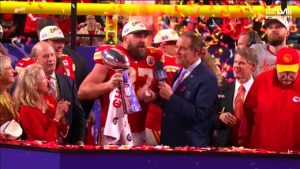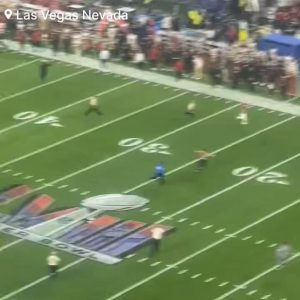In a high-stakes matchup between the Minnesota Vikings and the Kansas City Chiefs, a crucial moment in the fourth quarter left fans and players alike scratching their heads. The play in question occurred on a 4th-and-12 situation just outside the red zone with 4:54 left to play, as the Vikings desperately sought a late-game comeback.
Minnesota’s offensive coordinator, Kevin O’Connell, recognized the gravity of the situation and made the bold decision to go for it. He called a play that had Kirk Cousins, under immense pressure, loft a pass to Jordan Addison in the end zone. Although the pass ultimately fell incomplete, the U.S. Bank Stadium crowd erupted when a yellow flag appeared on the field, signaling a potential pass interference penalty against Chiefs cornerback L’Jarius Sneed.
However, what unfolded next left everyone in disbelief. Sneed, visibly frustrated with the call, removed his helmet to engage in a heated argument with an official—an act that, according to NFL rules, carries a 15-yard penalty. Astonishingly, the penalty for taking off the helmet went uncalled, and the initial pass interference call was reversed. As a result, the Vikings lost possession of the football, snatching away the opportunity to place the ball just inches from the goal line.
With the clock ticking down, Patrick Mahomes and the Chiefs offense succeeded in maintaining possession and running out the remaining time. The Vikings, despite their best efforts, could only watch as their chance for a late-game heroics vanished before their eyes.
The controversial sequence of events did not go unnoticed, sparking discussions and debates among fans and analysts alike. Social media was ablaze with reactions, and video clips of Sneed’s helmet removal and O’Connell’s pleas for a penalty quickly went viral.
Also Read: San Francisco 49ers TE George Kittle scores second touchdown vs Dallas Cowboys | Watch Video
This incident raises questions about consistency in officiating across the league and whether certain teams receive preferential treatment from referees. While NFL officiating is known to be challenging due to the speed and complexity of the game, instances like these serve as a reminder that calls—or in this case, non-calls—can have a significant impact on the outcome of a game and, ultimately, a team’s season.
For the Minnesota Vikings, the frustration was palpable, as they fell to a 1-4 record, trailing the Detroit Lions by a substantial three-game margin in the NFC North.






